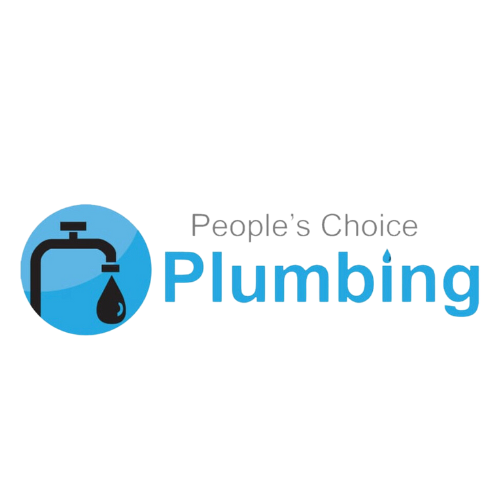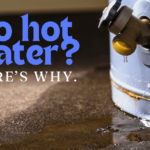Plumber Dave here to give you the lowdown about one of the most underrated but incredibly useful pieces of equipment for your home – the water softener. I’ve installed more of these bad boys than I can count over my 30+ year plumbing career. Whether you’re already using one or are just starting to learn about the wonderful world of soft water, you’ll want to give this a read.
First off, for those who don’t know, let me break down exactly what a water softener is and what it does. Essentially, it’s a specialized appliance that removes certain mineral ions from your water through a process called ion exchange. The minerals it targets are the ones that cause “hardness” – primarily calcium and magnesium.
So what’s the big deal about hard water? Well, as a plumber who has seen the insides of way too many mineral-caked pipes and appliances, let me tell you – it’s a nightmare. Those harmless-seeming dissolved minerals are like a ticking time bomb for your plumbing system and any water-based appliances you’ve got hooked up.
Here’s how it does the magic. The hot water heater is like the Thunderdome for hard water minerals. All that heat causes the calcium and magnesium to precipitate out of solution and form rock-solid scale buildup on the inside of the tank and pipes. That insulating layer makes the heater incredibly inefficient at doing its job of heating water. I’ve seen units so caked up they sound like a bag of rocks when you knock on them.
But the fun doesn’t stop there! That scale also builds up inside pipes, fixtures, dishwashers, washing machines – you name it. It clogs up , leaves crusty deposits on sinks and tubs, and can even make your clothes look dingy and feel rough after washing. Basically any place where water flows or pools, those minerals have a party and settle in for the long haul.
On top of the physical buildup issues, hard water makes it way harder to get things clean. Soap and detergents don’t lather or dissolve properly, leaving behind a filmy residue. That’s why getting glassware truly spotless is an uphill battle with hard water. Your hair will never feel as smooth and your skin as soft as it could either.
So how does a water softener solve all these problems? It’s all about that ion exchange process I mentioned earlier. The softener contains a tank filled with thousands of little resin beads that are negatively charged. As the hard water enters and flows through the tank, the positively charged calcium and magnesium ions are attracted to those beads like a magnet, sticking to their surfaces while sodium ions get released into the water in their place.
So you end up with water that has way less of the scaling, soap-scum causing minerals, replaced by more soluble sodium ions that don’t create issues. The sodium content is still incredibly low – nothing like what you’d get from softening salts. And the system regenerates itself automatically by flushing out the collected hardness ions and recharging the resin beads with fresh sodium.
Installing a quality water softener is one of the single best investments you can make for extending the life of your entire plumbing and water appliance ecosystem. I’ve been inside too many homes with ancient water heaters, pipes, and equipment that are still kicking because they’ve been protected from hard water’s ravages all these years by a trusty softening system.
On the flip side, I’ve also seen way too many preventable plumbing disasters caused by excessive hardness buildup. Clogged pipes that burst, water heaters that sprung catastrophic leaks, dishwashers and washing machines rendered completely useless – all because of out-of-control scale accumulation from untreated hard water. Replacing appliances and re-piping a home is very expensive compared to the relatively low cost of a good water softener.
From a professional plumber’s perspective, using softened water just makes so much sense for protecting that major investment you’ve made in your home’s water infrastructure. It prevents so many potential headaches and expenses down the road. But the benefits go way beyond just avoiding mineral buildup issues.
Having soft water makes cleaning pretty much anything so much easier and more effective, whether you’re washing dishes, clothes, surfaces, your car – you name it. You’ll use way less soap and detergents to get things clean. Things just feel fresher and smoother with softened water. Your hair and skin will feel softer and look more radiant too. No more that dry, filmy feeling you get after a shower in hard water.
On the environmental side, water softeners make it possible to lower temperatures for washing and heating water. Less heat is required because you don’t have that mineral buildup acting as insulation. That saves big on energy costs while reducing your carbon footprint.
From a professional plumbing perspective, installing a quality water softener is pretty much a no-brainer for any home on municipal or well water with even moderate hardness levels above 3-5 grains per gallon. The up-front cost is very reasonable, and the return on investment through lower utility bills, less cleaning/personal care product usage, and extended appliance life is outstanding.
So if you’re ready to join the soft water revolution and start enjoying benefits like:
- Cleaner dishes, surfaces, and clothes with less soap/detergent
- Softer skin and hair
- Lower energy costs for heating water
- No more mineral buildup clogging pipes and appliances
- Extending the life of your water heater, dishwasher, etc.
- Avoiding costly plumbing repairs and premature equipment replacement
Your pipes, appliances, wallet, and personal care routine will thank you.
Lay off that Liquid Plum’r and other harsh chemical drain cleaners too – with soft water you’ll have way fewer clogs to deal with. That’s all I’ve got for now on these awesome home problem-solvers. Stay safe out there and keep those pipes flowing clean and free!






